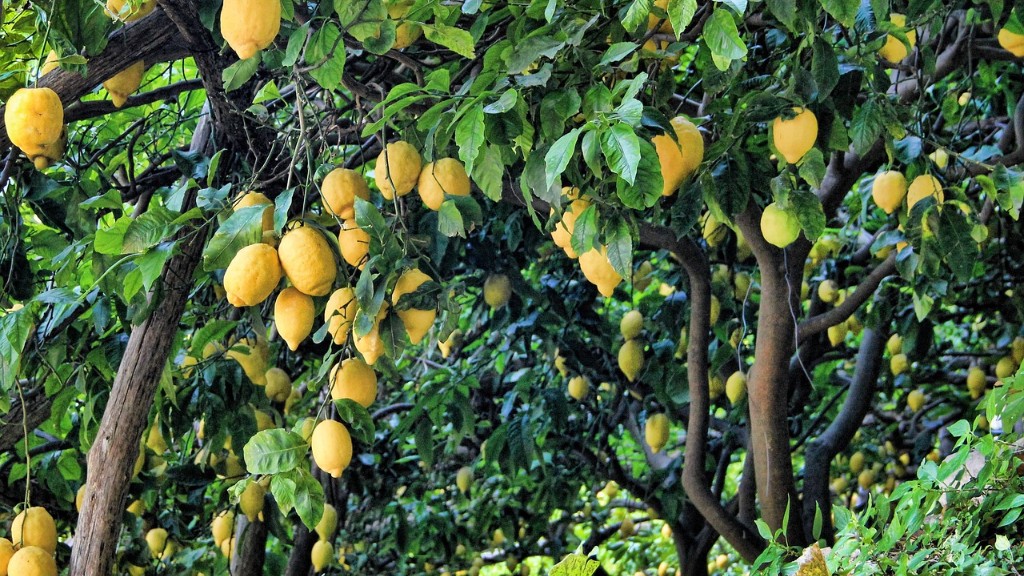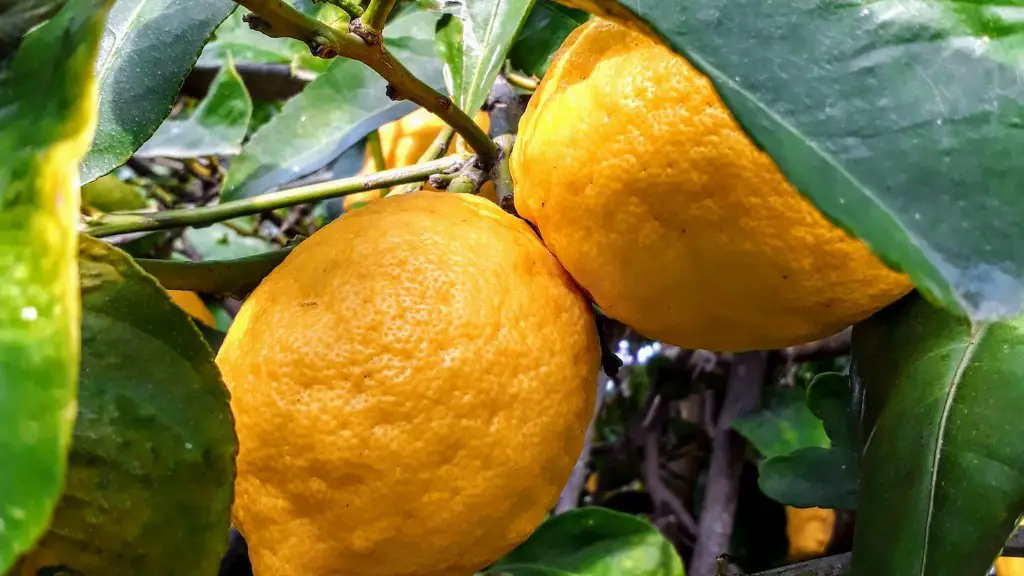The sight of a lemon tree being eaten can be quite disconcerting. Though sometimes hard to determine, it is important to know what is eating your lemon tree so you can take the necessary corrective steps. In this article, we will explore some of the most common culprits known to damage or even kill lemon trees.
The first possible culprit is animals such as deer, squirrels, rats, and birds. These animals can munch away on the bark and fruit of the tree sucking away the vital nutrients it needs to survive. If you suspect animals are to blame, look for physical signs such as gnawing or bark damage along with the presence of animal droppings. Fencing and netting can help mitigate the problem.
Another likely suspect is insects. These pests can damage or kill a lemon tree in a variety of ways such as boring into and eating the bark, sucking out the sap, or even eating the leaves. Inspect and monitor your tree for the presence of eggs or larvae. Many types of insects can be treated with insecticides, however, you must use the appropriate kind for your specific problem.
Fungi also can be a problem for lemon trees. Fungal diseases can spread quickly, especially in areas with wet climates, and can cause defoliation, discoloration, and stunted growth. Again, proper diagnosis of the problem is essential. Damage caused by fungi can be treated with fungicides.
Finally, the worst offender is root rot. This is a serious condition which can quickly kill a lemon tree. The root system of the tree becomes infected with a fungus which causes them to rot away. The key to avoiding this deadly condition is to plant your lemon tree in well-drained soil and to keep the roots moist but not wet. If you suspect root rot is the culprit, it is best to consult with your local agriculturist.
Prevention and Protection
The best way to protect your lemon tree’s health is through preventative measures. This includes proper plant selection, planting in an appropriate soil, and keeping an eye out for signs of problems. Inspect your tree regularly for signs of pests and diseases. Address any problems as soon as possible with the appropriate remedies.
Encourage healthy growth in your tree with compost. This natural fertilizer can add essential nutrients to the soil and may even protect your tree from disease. Pruning of damaged or diseased branches can help reduce stress on the tree and stimulate new growth.
Finally, mulching can help your tree in a variety of ways. It helps the soil retain moisture, encourages healthy bacteria which can protect your tree from disease, and keeps out weeds which can compete with your lemon tree for the necessary minerals and nutrients.
Pesticides
Insecticides or chemicals designed to protect your tree from an insect infestation can be an effective tool. However, they must be used with caution and only when absolutely necessary. Pesticides can have unintended consequences such as killing beneficial microorganisms which protect your tree from disease or killing pollinators such as bees.
Also keep in mind that many insect pests can be controlled without the use of insecticides. For example, beneficial insects such as ladybugs which feed on aphids can be a natural method of controlling pests. Implementing the appropriate preventative measures can help to reduce the need for insecticides in the first place.
Fungicides
Fungicides are chemicals specifically designed to kill and prevent fungal infections. As with insecticides, fungal diseases can be prevented through proper plant selection and cultural practices. If fungicides must be used, thoroughly research any chemical you are considering using and be sure to follow all safety guidelines.
Of equal importance is proper application technique. Fungicides need to penetrate the plant tissue to be effective. Applications should be done when temperatures are cool and the air is calm to minimise any drift or drift of particles.
Finally, be sure to consult your local extension office or agricultural experts for further advice and recommendations.
Environmental Factors
Environmental conditions can have a big impact on the health of your lemon tree. Make sure your tree is planted in a sunny spot and receives adequate amounts of water. Too much or too little water can lead to problems such as root and fruit rot.
In addition, soil pH levels (the acidity or alkalinity of the soil) must also be taken into account. Most citrus trees prefer a slightly acidic soil and will suffer if pH levels are too high or low. The pH of the soil can be most easily tested using a pH test kit.
Other environmental conditions such as temperature and air flow can also affect your tree’s health. Trees planted in windy areas or areas prone to frost damage, should be protected with windbreaks or winter netting.
Fertilization
Fertilizing your lemon tree can be beneficial in a number of ways. Fertilizers, when applied in the proper quantities, can help to maintain the pH levels of the soil, add essential nutrients, and can even help to reduce the effects of weed competition. Fertilizers are available in both organic and chemical varieties.
Organic fertilizers work by encouraging beneficial soil microorganisms which can help to release essential nutrients into the soil. Chemical fertilizers work by directly adding the required minerals and nutrients to the soil. When choosing a fertilizer, consult with your agricultural expert and make sure it is appropriate for your soil type and tree species.
In addition to providing essential nutrients, fertilizers can also help to reduce stress on the tree caused by environmental factors such as heat, wind, and cold. Fertilizers should be applied twice a year, and it’s best to follow the manufacturer’s directions for the proper application.
Leaf Analysis
Leaf analysis is another extremely useful tool for diagnosing problems in your lemon tree. Through a process of collecting samples of the tree’s leaves and testing them for nutritional deficiencies, you can gain valuable insight into the health of your tree and determine the best course of action.
Leaf analysis can be particularly helpful for diagnosing deficiencies in essential nutrients such as nitrogen, phosphorous, and potassium. It can also identify problems with micronutrients such as zinc and iron which are essential for healthy plant growth. Leaf analysis can be performed by certified laboratories or through a service provided by your local extension office.





